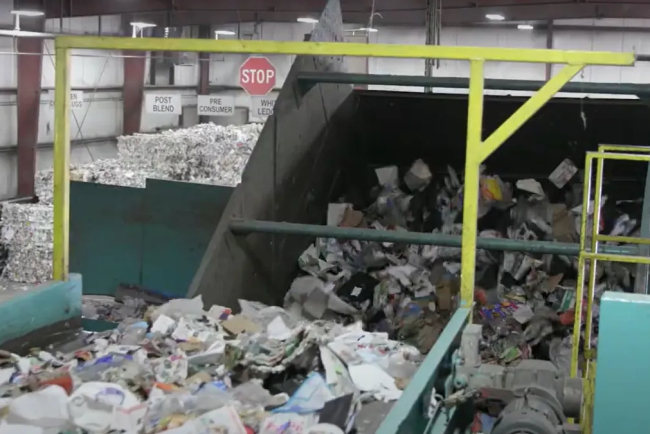Turning Waste into Wealth: How Advanced Recycling is Shaping the Plastics Industry
The plastics recycling industry is projected to reach $20 billion by 2030, driven by advancements in technology and supportive policies, highlighting the shift towards a circular economy.

The global plastics industry is undergoing significant transformation, driven by advancements in recycling technologies and a growing emphasis on sustainability. Recent reports indicate that the recycling sector, encompassing plastics, electronic waste (e-waste), and batteries, is poised for substantial growth, potentially reaching a market size of $20 billion by 2030. This shift is largely attributed to increased investments, regulatory support, and technological innovations aimed at enhancing recycling processes.
Market Growth and Investment Trends
According to a report by Avendus Capital, the recycling industry is expected to expand from its current valuation of approximately $4 billion to $20 billion by 2030. Plastic recycling alone is projected to grow at a compound annual growth rate (CAGR) of 24%, reaching $10.2 billion by fiscal year 2030. This growth is fueled by factors such as the rising use of recyclable plastics, increased demand in e-commerce and quick commerce packaging, and the adoption of lightweight products.
The Indian government's Extended Producer Responsibility (EPR) policy and emerging clean-packaging business models are facilitating the collection and segregation of plastic waste. Furthermore, the integration of artificial intelligence (AI) in recycling processes is enhancing efficiency and effectiveness.
Technological Advancements in Recycling
The global plastic recycling market is experiencing significant technological advancements. Innovations such as near-infrared sorting, robotics, and self-cleaning filters are improving the quality and efficiency of recycled materials. These technologies ensure accurate polymer identification and meet the increasing demand for eco-friendly products across various industries.
Additionally, advanced chemical recycling methods, including pyrolysis, gasification, dissolution, and depolymerization, are gaining traction. These processes enable the recycling of a broader range of plastic types, including multilayer films and polystyrene, which are traditionally challenging to recycle. The development of emerging technologies such as microwave heating and plasma processing further enhances recycling capabilities.
Economic and Environmental Implications
The expansion of the recycling industry presents significant economic opportunities. The global plastic recycling market, valued at $45.5 billion in 2023, is projected to grow at a CAGR of 9.3%, reaching $129.5 billion by 2035. This growth is driven by factors such as increasing consumer demand for recycled plastics, stringent regulatory policies, and advancements in recycling technologies.
From an environmental perspective, recycling plastic reduces reliance on virgin materials, conserves resources, and decreases pollution. For instance, recycling 1,000 kg of plastic can save approximately 685 gallons of oil, 5,800 kWh of electricity, and 30 cubic yards of landfill space. These benefits underscore the importance of transitioning to a circular economy, where materials are continuously repurposed, minimizing waste and resource depletion.
Challenges and Future Outlook
Despite the promising growth prospects, the recycling industry faces several challenges. The lack of adequate infrastructure in developing regions, contamination in recycling streams, and the high costs associated with advanced recycling technologies pose significant hurdles. Addressing these challenges requires concerted efforts from governments, industries, and consumers to invest in infrastructure, improve waste segregation practices, and support research and development in recycling technologies.
Looking ahead, the recycling industry is expected to continue its expansion, driven by ongoing technological innovations, supportive policies, and a collective commitment to sustainability. The integration of advanced recycling methods and the promotion of a circular economy will play pivotal roles in achieving these objectives.
Conclusion
The plastics recycling industry is at a pivotal juncture, with significant growth anticipated in the coming years. Advancements in recycling technologies, coupled with supportive policies and increasing consumer demand for sustainable products, are driving this transformation. While challenges remain, the industry's trajectory suggests a positive outlook, with the potential to contribute substantially to both economic development and environmental conservation
What's Your Reaction?

















